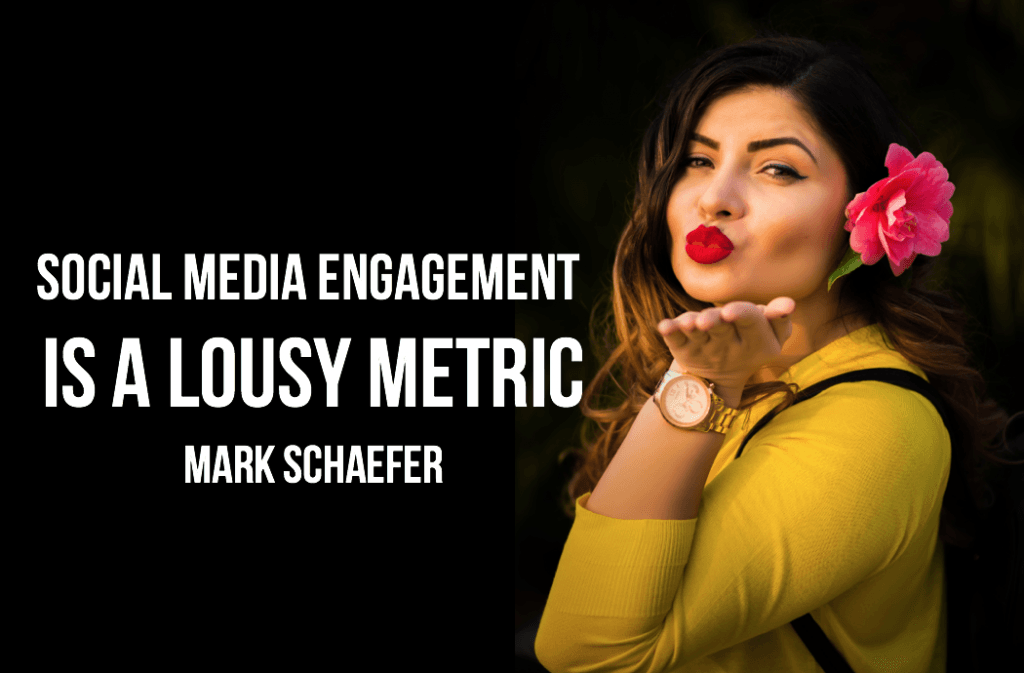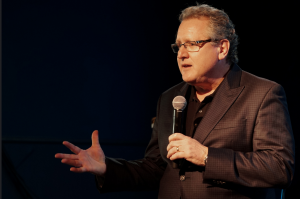
By Mark Schaefer
Thank you for your social media engagement through your generous tweets, blog comments, and likes. I have just one question: Why aren’t you hiring me?
Let me unpack this unusual question …
I’ve been creating content consistently for nearly 10 years and have built an amazing community that has generated 60,000 blog comments and hundreds of thousands of likes, tweets, and mentions. Many of these “regulars” have become extremely close friends.
But I’ve been doing this long enough now to see a pattern in terms of relationships and commerce. My business has increased steadily for a decade, entirely built on content marketing. But 95 percent of the time when somebody hires me for a speech, workshop, or consulting engagement, I’ve never heard of the person before. Doesn’t that seem weird?
All that time, all that content, all that engagement, and I’ve never heard of the people who become my biggest customers.
To be clear, nearly everyone who hires me is a fan of some form of my content — this blog, The Marketing Companion podcast, my marketing books. But almost no one has ever engaged with me on social media. The strangers are the ones who are sending me the paychecks.
If engagement doesn’t necessarily lead to customers, why is there so much preoccupation with this metric? Here are a few observations:
The silent majority
I haven’t seen any real research on this, but a rule of thumb among bloggers is that less than 2 percent of your audience actually comments on your content. So, in a way it makes sense that people who don’t comment are the ones who hire me, simply because most people who consume content don’t engage.
The fact that my top engagers don’t hire me is no reflection on them. It’s simply math — the vast majority of people who read my stuff will never comment. And that’s OK. Engagement is not necessarily a measurement of impact.
The connection is real
I believe one of the greatest opportunities with social media marketing is to build an emotional connection with people that leads to business benefits over time.
But that doesn’t mean the relationship is two-way.
I’ve had lots of experiences where strangers come up to me at a conference and approach me as if I am a close friend. Over the years, they have come to know me through my content — my values, my views, my challenges, and my victories. They probably know me better than some of their own family members, but that doesn’t mean I know them. And it doesn’t really matter. The bond is no less important and I respect that.
People may not be engaging, but that doesn’t mean they’re not connected.
Social media engagement may be the wrong metric
I was recently working with a marketing manager who was exasperated because all her boss cared about was social media engagement as their measurable. She was driving herself bananas trying to get people to like and comment on their posts even though it had no measurable impact on sales.
To be clear, there certainly is some value to “engagement:”
- It can be a leading indicator of business benefits to come
- It provides social proof that there is activity on the content
- It can provide feedback and validation of your effort
But pushing engagement without tying it to business benefits can be costly and unwise. Let me provide an extreme example. The most popular blog post I ever created was called Content Shock. The thing has received thousands of shares and comments. For a three-week period after that post came out, “engagement” was nearly a full-time job! There was so much engagement it was making me go broke! There is a financial cost to engagement, so we need to be aware of the financial impact.
Alternatives to social media engagement
In addition to the pressure of Content Shock, there are other forces working against customer engagement. In the past three years, the number of people reading my blog has gone up, the page views have gone up, but engagement through comments has plummeted. One of the reasons is that more and more people are viewing my content on mobile devices. Have you tried to leave a comment on a mobile device versus a desktop? It’s hard work. This tech trend is depressing engagement levels.So instead of social media engagement, here are three metrics that I believe provide a better view that you are heading in the right direction:
- Social sharing — There is no economic value in content, only in content that is seen and shared. You should be building a competency in content ignition, as well as content creation.
- Return visitors — You’re creating real fans and emotional connection, even if they don’t comment
- Average time on site — You’re holding their attention. They are learning about you.
Focusing on those three measures will drive the right marketing behaviors in your organization — much better than engagement. And of course the ultimate measure is conversions and sales.
What are your thoughts? How about some engagement! : )
 Mark Schaefer is the chief blogger for this site, executive director of Schaefer Marketing Solutions, and the author of several best-selling digital marketing books. He is an acclaimed keynote speaker, college educator, and business consultant. The Marketing Companion podcast is among the top business podcasts in the world. Contact Mark to have him speak to your company event or conference soon.
Mark Schaefer is the chief blogger for this site, executive director of Schaefer Marketing Solutions, and the author of several best-selling digital marketing books. He is an acclaimed keynote speaker, college educator, and business consultant. The Marketing Companion podcast is among the top business podcasts in the world. Contact Mark to have him speak to your company event or conference soon.
Illustration marked safe for re-use by Unsplash.com


